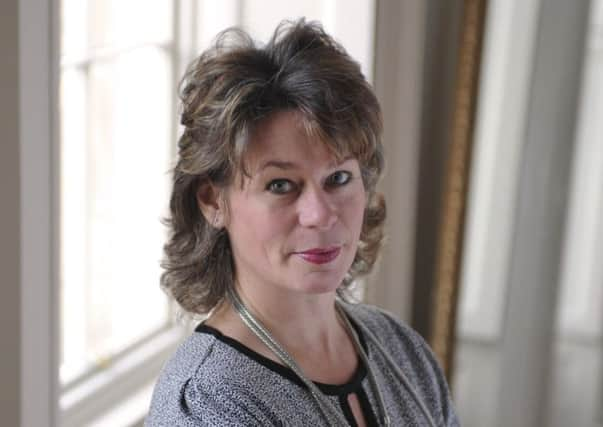Leaders: Michelle Thomson’s future hangs in balance


Will Michelle Thomson ever return to serve as the SNP member for Edinburgh West, following her resignation of the party whip and suspension from party membership?
A police investigation into deals involving her property company, centring on the conduct of a disgraced solicitor, threatens to derail a political career which only took off five months ago.
Advertisement
Hide AdAdvertisement
Hide AdLinks with solicitor Christopher Hale, who was struck off over 13 potentially fraudulent transactions involving Ms Thomson’s company, could leave the MP’s reputation permanently tainted.
There are many questions that need to be answered as a matter of urgency. First and foremost, was Ms Thomson aware of her solicitor’s actions during the property transactions, which included failing to provide mortgage companies with key information used to prevent fraud?
The former financial services worker insists she has acted within the law. No complicity has been demonstrated, and she is not under investigation at present.
The legal process triggered by Hale’s conduct will now run its course, but there are other issues to consider.
According to the Law Society, Hale’s practices were first raised with the Crown Office informally in December 2014 – five months after the society published its judgment on his misconduct. Why the delay?
The matter was then formally referred to the Crown Office in July 2015. Why this further seven-month delay?
And did Ms Thomson declare her dealings and connection with Hale when being vetted for SNP candidacy in the general election? It seems she did not, given that the First Minister stated yesterday that the party was unaware of the allegations that have been made until they appeared in recent newspaper reports.
It is clear that, if the SNP had no knowledge of this issue, the SNP’s vetting process for parliamentary candidates is not robust enough. It is probable the existing measures are out of date, designed for a time when only a handful of SNP candidates had a realistic chance of reaching Westminster. The unprecedented surge that saw the SNP elect 56 of Scotland’s 59 MPs requires an urgent rethink of internal party procedure.
Advertisement
Hide AdAdvertisement
Hide AdWhether relinquishing the SNP whip at Westminster was Ms Thomson’s own decision or on orders from above is open to conjecture, but it is clear the leadership is taking the matter very seriously.
The First Minister was wise not to leap to her colleague’s immediate defence yesterday, or to dismiss the allegations. Instead, Nicola Sturgeon has backed the MP’s decision to step aside while investigations are carried out.
But whatever the eventual outcome, Ms Thomson is going to find it tough to weather this storm. Allegations have been made that she took advantage of cash-strapped families to buy their houses for less than their market value. Questions of morality are already being asked over whether her party’s political ethos is consistent with a member building up a large property portfolio in potentially dubious circumstances,
Her political future is hanging in the balance, and the odds may already be stacked against her making the 55 into 56 once again.
Russian airstrikes won’t solve crisis
There is no doubt the conflict in Syria is a complex one. Nevertheless, it is unlikely that snap unilateral action like that we learned of yesterday will achieve the desired outcome.
Many senior Tories are backing Russia’s decision to become militarily involved in the war, claiming working with Syrian President Bashar Assad is the “lesser evil” in the fight against Islamic State.
However, questions have been raised over who exactly was the target of the first air offensive.
The assumption was that attacks were aimed at IS, with Russian leader Vladimir Putin presenting the offensive as a pre-emptive attack against militants who have taken over large swathes of Iraq and Syria.
Advertisement
Hide AdAdvertisement
Hide AdBut it appears this was not the case and instead bombing sorties may have been charged with destroying Assad’s enemies. US sources claim the airstrikes, in the rebel-controlled areas of Homs and Hama, could not be targeting IS because the group has no presence there.
Russia’s latest actions add further casualties in a bloody four-year civil war in Syria that has resulted in at least 250,000 deaths, the destruction of irreplaceable historical treasures and forced millions to flee their homeland.
But if IS was not the intended target, such direct military intervention could put any chance of achieving lasting stability in the region under threat.
The international community has remained hopeful that resolution in the conflict, which sparked the massive crisis of refugees fleeing to Europe this summer, can be reached through diplomacy.
However, this latest hastily ordered action sees the prospect of a peaceful conclusion sliding still further out of reach.